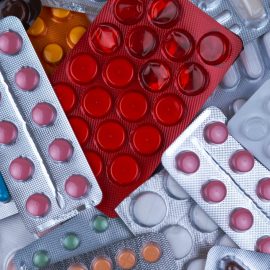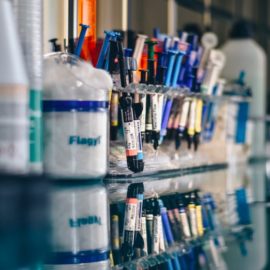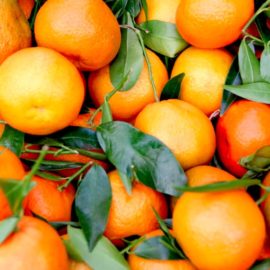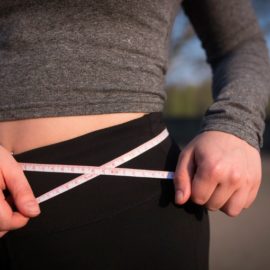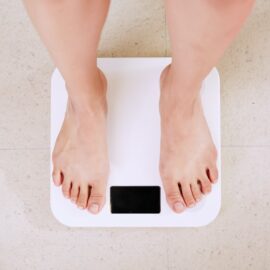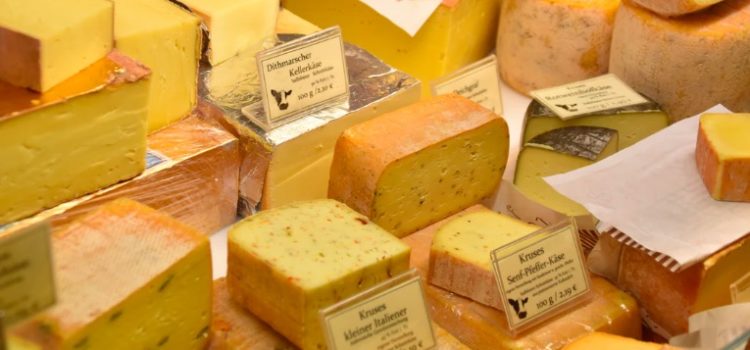
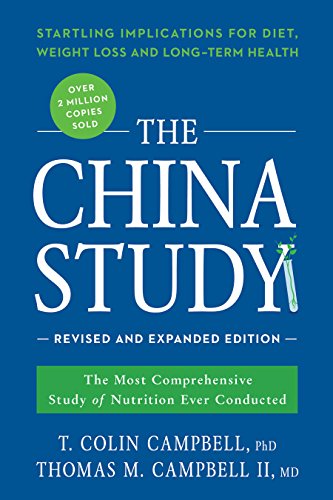
This article is an excerpt from the Shortform summary of "The China Study" by Colin Campbell. Shortform has the world's best summaries of books you should be reading.
Like this article? Sign up for a free trial here .
Cancer is a disease that’s startling in its prevalence. Males have a 47% chance of developing cancer in their lifetimes and females have a 38% chance. Is diet a contributing factor to the prevalence of these diseases? And if it is, what are the cancer-causing foods you should avoid?
Contrary to what we’re often told, cancer is not a natural or inevitable disease. Most cancers are preventable through diet and lifestyle choices, but cancer death rates haven’t decreased over the past 20 years, despite all we’ve learned about this group of diseases. We’ll cover the studies linking certain foods, particularly dairy, to cancer and discuss which carcinogenic foods to avoid.
Milk: The Cancer-Causing Food You Don’t Want to Give Up
Synthetic chemicals are not the primary cause of cancer. What we eat greatly affects our cancer risk.
We think that carcinogens cause cancer, but, like genes, carcinogens likely need to be activated to do harm. They’re often activated by diets high in animal protein. One of the most studied cancer-causing animal proteins is casein, the primary protein in milk.
Cancer is one of the most feared diseases in America. We’re swift in responding to carcinogen discoveries, decrying the use of DDT, Red Dye Number 2, nitrates, and artificial sweeteners.
But we’re not swift in the face of discoveries that are much more impressive and substantial, like the research linking casein with cancer. These findings are so counter to what we’ve always been told that they’re hard to take seriously.
Another discovery that gets ignored is the fact that cancer is, for the most part, preventable. Genetics only determine 2-3% of your cancer risk.
A growing body of research suggests that we have control over our cancer risk.
Studies on Milk, a Prevalent Cancer-Causing Food
In studies by T. Colin Campbell, author of The China Study, rats were administered the carcinogen AF. Campbell found that animal-protein consumption increased the risk of various cancers (including liver, pancreatic, and breast) at different stages of the cancer’s development. The results remained consistent when the rats were dosed with other carcinogens, such as hepatitis B, indicating that animal proteins may open the door for multiple types of carcinogens (cancer-causing substances).
Conversely, antioxidant-rich plant foods can diminish the potency of carcinogens.
Carcinogenic Foods and the Three Stages of Cancer
Carcinogens cause cancer by permanently damaging a cell’s DNA, mutating it from a normal cell to a cancer cell. The cancer cell then replicates, and the cancer may spread to other tissues and body systems.
To understand how proteins from cancer-causing foods influence this development, we need a basic understanding of the three stages of cancer. We can think of these stages like the process of seeds becoming a lawn.
Stage 1: Initiation
This is the stage analogous to putting the seeds in the soil. In this stage, the carcinogen enters the body and is transported into cells.
Also in this stage, the carcinogen changes into its “active” dangerous form and binds to DNA. Damaged DNA is then passed on to daughter cells. In humans, this stage can be completed within minutes and it can’t be reversed. Once it’s done, it’s done.
Research on Cancer-Causing Food Protein in the Initiation Stage
Through various studies, Campbell and his researchers found that low-protein diets (diets low in animal protein) can do the following at this stage:
- Allow less of the carcinogen into the cell
- Slow the multiplication of cancer cells
- Reduce enzyme activity in the cell (enzyme activity “activates” the carcinogen, making it more dangerous)
This means that lowering your animal-protein intake can greatly decrease your chances of tumor initiation. In other words, a low-protein diet can decrease the number of seeds (activated carcinogens and damaged cells) in the ground (the body). Milk is a cancer-causing food in that it facilitates the movement of carcinogens into the cell.
Stage 2: Promotion
In this stage, the seeds are getting ready to become small blades of grass, or cancer cells are getting ready to grow and multiply.
During the promotion stage, a cluster of cancer cells grows into a detectable tumor. In humans, this stage progresses over many years.
Just as seeds won’t grow into blades of grass if their environment doesn’t have enough sunlight, water, and nutrients, cancer cells won’t multiply if the conditions aren’t right. They’ll just stay dormant.
What makes conditions “right”? Animal protein may provide the perfect environment for cancer growth.
Research on Cancer-Causing Food Protein in the Promotion Stage
Rats given a high dose of a carcinogen but fed a low-protein diet were less at risk of developing a tumor, compared to those given a low dose of the carcinogen but fed a high-protein diet.
In other words, the presence of protein mattered more than the amount of the carcinogen. We can consume large doses of carcinogens and still not get cancer when we limit our animal-protein intake.
Interestingly, protein (specifically, casein) acted as a switch during this stage. Researchers could increase the amount of protein in an animal’s diet and watch the cancer-cell clusters grow. Two weeks later, they could decrease protein and watch cluster growth slow and even reverse. They could change the direction of growth multiple times, with both animals that started on a high-protein diet and those who started with a low-protein diet.
This implies that even after cancer growth was reversed, the cancer cells never disappeared. They were just dormant. So if you stop eating dairy for years but start eating it again later, you could reactivate cancer cells that have been dormant.
Clusters of cancer cells only developed when rats were fed diets of 12% casein protein or higher. Those who ate more than the required amount of protein they needed to survive and grow were at the greatest risk.
Implications: How What We Eat May Cause Cancer
Generally, the amount of protein we need to survive and grow is 5-6% of our calorie intake. However, the average American eats a diet that’s 15-16% protein, three times more than what’s necessary to thrive.
Based on rat studies, this could be a dangerous amount. Not only does eating a lot of animal protein promote cancer growth, but it also displaces other necessary macro- and micronutrients like carbohydrates, vitamins, and minerals.
In summary, Campbell’s work indicated that we can reverse progress through the promotion stage by limiting “promoters” like animal proteins, which foster the growth of cancer cells, and by increasing “anti-promoters” like vitamins, which slow the growth of cancer cells.
Animal Proteins Cause More Damage than Plant Proteins
Campbell’s rat studies involved casein, a protein from cow’s milk. Other researchers have shown that feeding rats a diet of 20% soy or wheat protein doesn’t have the same effect as casein. These plant proteins don’t create conditions that promote cancer growth.
Researchers were also curious about the role of other nutrients on cancer growth. When they experimented with fish protein, dietary fats, and carotenoids (found in squash, carrots, and oranges), they discovered a theme: Nutrients that came from animals increased tumor development while nutrients that came from plants decreased tumor development.
These findings are reflected in population studies as well. For instance, American women, who eat a dairy-rich diet, die from breast cancer at a rate five times higher than women in rural China, who eat a “dairy-poor” diet.
Cancer-Causing Foods
Based on the studies linking animal foods and cancer risk, here are some of the carcinogenic foods you should consider cutting from your diet.
- Milk and all dairy products, including cheese and yogurt
- All meat, but especially meats that have been cured or preserved with chemicals. These include processed meats like bacon, hot dogs, and beef jerky. But keep in mind that Campbell believes that all meat is carcinogenic
- Fish, particularly salted fish
Reducing the consumption of cancer-causing foods that you eat daily is hard, but it’s worth the health benefits.
———End of Preview———

Like what you just read? Read the rest of the world's best summary of "The China Study" at Shortform . Learn the book's critical concepts in 20 minutes or less .
Here's what you'll find in our full The China Study summary :
- Why animal proteins (meat, milk) might cause cancer, diabetes, and other diseases
- Why the medical institution is structured to hide the truth about disease and food
- The precise diet you'll need to eat to live longer and feel happier

